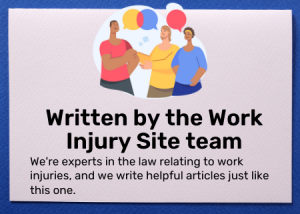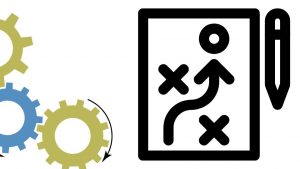The WorkCover settlement process (Vic)
This page will look at the WorkCover settlement process in relation to each of the main WorkCover entitlements that a person may claim.
Table of Contents
Medical and like expenses and weekly payments settlement process
If the WorkCover insurer has refused to pay for a particular type of medical treatment, or all of your medical treatment, you may appeal their decision.
The first step is to proceed to conciliation.
At the conciliation stage, in some cases the insurer may agree to withdraw their decision.
Or alternatively, they may make you an offer (or multiple offers) to resolve the matter on a limited basis.
An example of a limited basis is this: say the matter concerns the insurer not wanting to pay for physiotherapy treatment, they might offer to pay for ten physiotherapy sessions with no more sessions to be paid after that.
If the matter fails to resolve at the conciliation stage, thereafter you may elect to proceed to the medical panel or to the Magistrates court.
If the matter proceeds to the medical panel then the panel will make a decision that will be binding on the parties (in a limited number of cases medical panel opinions can be appealed however).
If the WorkCover dispute goes to the Magistrates court, what can happen is it the parties can negotiate a settlement.
So say for example if the payment of physiotherapy treatment is in dispute, the parties may reach an agreement whereby any physiotherapy treatment that you are out of pocket to the date of the settlement can be paid to you in addition to a certain number of treatments in the future.
Your lawyers can negotiate this on your behalf and they should seek your instructions before accepting any offers from the other side.
If the dispute relates to weekly payments, then it is very similar in that if the matter proceeds to the conciliation stage, the insurer can agree to withdraw their decision.
Alternatively, they can offer to resolve the matter, for example, on the basis that you receive payments for a limited period but not thereafter.
If you proceed to the medical panel then the panel will make a decision in relation to the matter.
If your weekly payments dispute goes to the Magistrates court, then like in relation to medical and like expenses, the parties can reach an agreement to resolve the matter for a specified period of weekly payments, or the other side may elect to withdraw the original decision.
Impairment claim settlement process
The impairment claim, which you can read about here, can settle after you’ve gone through the assessment (or assessments) organised by the insurance company.
Or alternatively, if you reject the assessment performed by the doctor or doctors in the first instance, then you can elect to proceed to the medical panel and the panel can make a decision which is binding on the parties (although as mentioned above, in some instances you can appeal a medical panel decision).
There is little scope to negotiate in relation to an impairment claim and therefore the settlement process is rather straightforward.
The key with an impairment claim is understanding how the medical assessments work and how whole person impairment ratings are calculated, and also ensuring that all relevant injuries and conditions are assessed.
To settle the matter, either after your first medical assessment/s, or after the medical panel, you will need to sign what’s called a worker’s response form.
Copyright notice – this is original content from TheWorkInjurySite.com.au.
This is a form that indicates that you accept the liability decision, (which means the insurers decision to accept or reject certain injuries), that you accept the whole person impairment rating, and that you accept the calculation of the impairment benefit amount.
Without signing the workers response form, the matter will not be settled.
Generally speaking, you’ll be paid impairment compensation within 2-3 weeks from when the workers response form has been returned to the insurance company.
Common law settlement process
The settlement process when it comes to a common law claim can be very complex.
There are a number of occasions in which a common law claim can resolve during the life of the claim.
A common law claim is initiated by the lodgement of a serious injury application.
If the other side is satisfied that you reach the serious injury threshold, then during the 120 day serious injury determination period, the other side can contact your lawyers and indicate that they would be interested in entering into settlement discussions.
To clarify, the 120 day period is how long the other side have to make a decision in relation to your serious injury application.
That decision is either yes you have a serious injury or no you do not have a serious injury.
So the other side can shortcut the process and say yes you’ve got a serious injury and also that they want to negotiate and potentially settle your matter during this 120 day period.
Let’s say that you go through the 120 day period and you obtain a serious injury certificate.
Then what typically happens is that you proceed to a WorkCover settlement conference where the parties will negotiate the matter and potentially the matter may settle.
Taking a step back, let’s say that you do not obtain a serious injury certificate during the 120 days.
That is, the WorkCover lawyers determine that your injury does not reach the threshold for serious injury. They say ‘no’ to granting you a serious injury certificate.
You then need to, if you wish to proceed with the matter, issue County Court proceedings to have a Judge determine whether you have a serious injury or not.
At any time prior to the hearing of the matter, the parties can settle the matter.
So even though the reason for the hearing is the determination of a serious injury, that is, it’s a yes or no question essentially, it is possible that leading up to this hearing your matter could settle by way of negotiations between the parties.
Let’s say that you’ve obtained a serious injury certificate either after being granted a serious injury certificate during the serious injury determination stage, or alternatively after issuing County Court proceedings, the next step if the matter fails to settle is to issue proceedings, potentially for the second time, in the County Court or Supreme Court.
Also, before the matter reaches any hearing it would need to be the subject of a mediation and again, the matter may resolve at this point.
If not and if your matter proceedings to hearing, at any point during the running of the matter the parties can elect to negotiate and settle the matter.
When your matter does settle, you’ll typically be required to sign at least two documents.
The first is a settlement authority that is a requirement of your lawyers.
This document provides your instructions to settle the matter.
And it may also confirm how much you will be required to pay to your lawyers by way of costs, and how much you will receive in your pocket by way of compensation.
The second document is called a release. It is a document that confirms the settlement between the parties in writing.
Generally speaking, you will be paid any settlement monies in 4-6 weeks from when the release document has been provided to the other side.
Conclusion
When it comes to medical expenses and weekly payments, the WorkCover settlement process in relation to these entitlements is fairly straightforward.
As is the settlement process when it comes an impairment claim.
When it comes to the settlement process with regard to a common law claim, this can be quite complex and there are a number of instances during the life of a common law claim during which a matter can settle.








